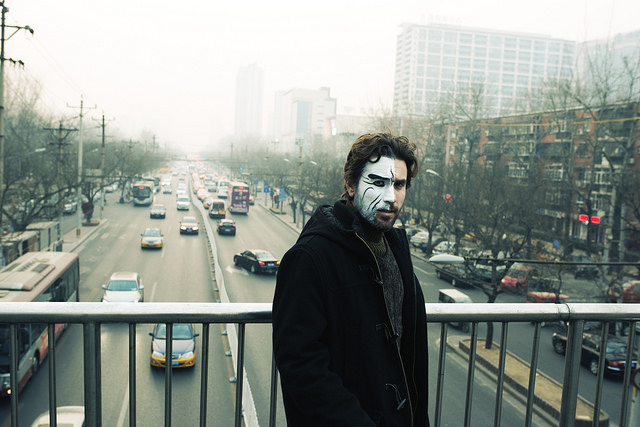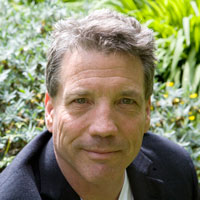I counsel a lot of people these days who are going through hard times.
By hard times, I mean that they want their life to be different.
There are common themes that seem to be highlighted for some reason during election years, probably because we are facing the inevitable cycle of a changing of the guard. Anxiety, worry and other negative emotions seem to surface more often when our world is about to change and we don’t know what is going to happen.
We get bogged down in our own little worlds and either forget or need to learn some bigger lesson during this process. Astrologers point to full moons, lunar and solar eclipses as an opportunity to create great growth and change in our lives. Give me a national election any day, and I will show you the soft underbelly of people who otherwise seem to have it all together.
This particular presidential election seems to be perfect to show us all of the hidden fears, deceit, anger and violence lurking just below our thin veneers of civility. I have never witnessed such continuing and nasty personal attacks each candidate seems to relish against the others. As the reach and breadth of the internet expands, personal responsibility and integrity seems to be inversely proportional.
It struck me this morning that we need to pay attention to our darker side, because, like it or not, it is becoming more and more public.
This presidential election is showing us how we are hypocrites (I know that smacks a bit, but we do have to own that we don’t live life fully with absolutes and if you are, you aren’t growing) and how easily the darker side of our nature surfaces.
It provoked me to start looking at how other complaints could be showing us something we rarely consider in the heat of the moment. I distinctly remember wanting to become enlightened or conscious as quickly as possible, and I am now experiencing the lessons that I have to learn to really understand what life is about. When I compare these lessons to the themes that are running through my client’s lives I notice some commonality between the lesson and what people are experiencing.
Here are a few themes with the bigger picture attached:
1. Money.
While the rich are getting richer and everyone else is getting poorer, I talk to many people who are experiencing money issues for the first time in their adult lives. People who have never faced dwindling funds or budgets are having to forego that week long workshop in a destination resort because they don’t have the money. That can be extremely cathartic, and many people who give lip service to the notion that we are the creators of our reality suddenly start talking about how unfair the universe can be and become victims of their own platitudes.
As I have been through times like this, several times, I have come to understand that we either learn that money has nothing to do with happiness or we don’t.
As I told a client the other day, the only way we can truly learn that money has nothing to do with happiness is to be broke. Then we have to apply what we know to be happy even though we may be going through a temporary crisis. It is not the end of our world, it simply is the lesson that money is not required to be happy. The sooner we learn this lesson, the quicker we don’t have to be broke.
2. Relationships.
Second only to money is the complaint of being alone. I am 62 and I have been single more years that I have been married. It seemed that I would never find someone to share my life with in peace and love. All of my relationships had ended unpleasantly with blame and shame with more than enough to go around.
We give lip service to the concept that we have to love ourselves before we can love someone else. The quickest way to learn how to love ourselves is to be alone. (Is the light bulb going off and on yet?) It is not punishment to be alone, it is an opportunity to work on what is important and what isn’t. I have learned that nothing is important in a relationship other than respect and kindness. Now I am engaged and so far, it’s looking pretty good.
3. Family.
One of the most overlooked spiritual principles is a saying by Buddha: “we are not our children’s parents and we are not our parent’s children.”
What this means is that we are only responsible for our own actions, and we have to empower people to take responsibility for their actions. My mother graduated to the next adventure in 2007 and my father graduated in 2015. For people who are co-dependent and attached to their parents, the loss of parents can be devastating.
I have two sons, both of whom had behavioral issues when they hit puberty. The younger kept ending up in ICU rooms due to drug overdoses. The loss of a child is purportedly the most painful event in a parent’s life, primarily because we don’t let them be individuals and stand on their own two feet. So losing a parent or a child (or any loved one) can be devastating if we don’t understand that we can’t control any life other than our own, and even then, that can be out of our control.
So we sometimes have to deal with our family’s pain to understand that we are not responsible for anyone’s pain other than our own.
4. Death.
The one thing that we all know comes with the gift of life is that no one gets out of here alive. We either understand that death is an illusion or we don’t understand it. It is a habit that we humans just can’t seem to break.
When someone dies, that is the lesson we have to learn. Death is not unfair or a punishment. Death is and will always be the outcome of life. We experience the death of others to learn that we have to learn how to accept death as a necessary part of life. It makes life sweeter and more precious. Grief is a natural part of losing someone, but if we also experience guilt with it, we only create our own pain and suffering. We simply need to process the loss of our beloved and keep living.
We have to learn that when our time comes, as it will for everyone, it is not our fault. We can be grateful for the departed for giving us that lesson.
It is important to always be looking for the bigger picture. The bigger picture is not unfair, capricious or arbitrary. Everything in life is a gift (aka the present). When we accept the fact that everything happens for us, not to us, we can begin to make sense of a seemingly senseless world.
I know it’s a big leap with the media slamming the worst of everything down our throats, but when the presidential candidates misbehave, we can be grateful that we are reminded that we need to pay attention to our darker sides, and heal them.
When we learn to look at life as a wonderful adventure, it becomes more fun. It is like we are standing one inch from a painting and we can only see one small part of the canvas. When we step back we can see the whole thing as it is; life is a beautiful, complex and artistic work of art.
Author: James Robinson
Editor: Catherine Monkman
Image: Jonathan Kos-Read/Flickr









Read 8 comments and reply